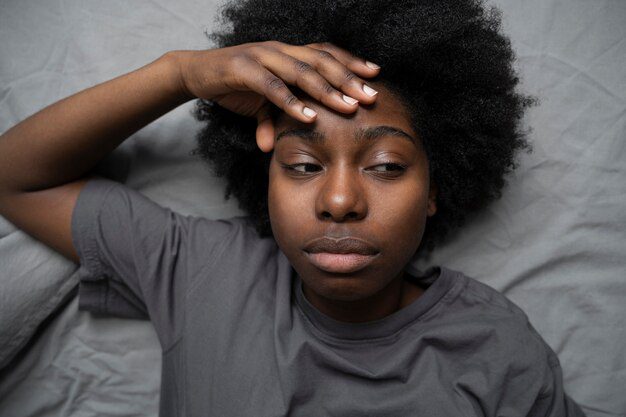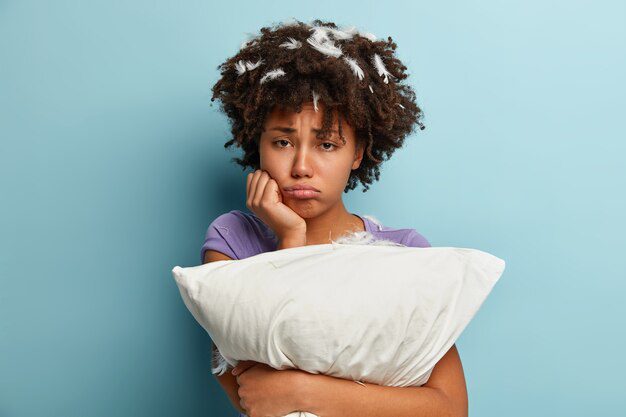This content is for informational and educational purposes only. Always consult a qualified healthcare provider.
The consequences of sleep deprivation are many, including poor physical and mental health, relationships, and daily life. Sleep deprivation is a widespread issue that affects millions of people all around the world. And somehow it is being romanticized, or better yet, joked about, especially amongst teens, and young adults. For example, memes and jokes about not getting enough sleep, or calling themselves night crawlers. Not being informed about the consequences of sleep deprivation or the dangers of not getting enough sleep every day.
While an occasional sleepless night might not seem like a big deal, chronic sleep deprivation can have severe consequences on our physical and mental health. It’s quite important to help people understand the effects of sleep deprivation, so it can help prevent health problems in the future.
Yes, it’s fun to have cool events like game nights, sleepovers with the girls, and others; however, you must always consider your health.
📋 Table of Contents
Consequences of Sleep Deprivation


Here are some potential consequences of sleep deprivation:
Physical health
1 . Weak immune system: Sleep deprivation can weaken our immune system, which makes us more susceptible to getting sick. It can impair the function of immune cells, such as natural killer cells. Also, lack of sleep can lead to chronic inflammation, which can increase one’s risk of diseases. What’s more, people who are sleep-deprived are more likely to get sick and take longer to recover. Which is not surprising seeing that the body barely has any energy or time to recuperate.
2 . Increased risk of chronic diseases: Chronic sleep deprivation is linked to an increased likelihood of developing chronic diseases. Such as high blood pressure, heart attacks, stroke, and type 2 diabetes.
3 . Excessive weight gain: High-weight gain has been linked to sleep deprivation. Sleep deprivation can disrupt hormones that regulate hunger and fullness, which ends up causing a person to gain an unhealthy amount of weight.
4 . Increased risk of accidents: One of the consequences of sleep deprivation is the increase in accidents, including car accidents and workplace accidents. For example:
- Drowsy driving: Sleep deprivation can affect our ability to drive safely, which increases the risk of car accidents, and even death.
- Workplace accidents: A person can also be affected negatively due to lack of sleep, and it follows them to work. Therefore, it will be quite difficult to perform tasks safely, due to an impairment in performance, which increases the risk of workplace accidents.
5 . Premature aging: According to the National Institutes of Health sleep insufficiency can lead to premature aging. Therefore the following things may occur, and you could get things like wrinkles, fine lines, and age spots.
6 . Poor skin: Insufficient sleep can affect the way your skin looks, it can make it look dull, dry, and non-glowy. You could even have breakouts, pimples, and all sorts of skin issues. Because lack of sleep can lead to stress, and stress never looks good on the skin. Lack of sleep, especially when it is regular, can affect your mental health, which can lead to certain mental health conditions. Such as:
Mental health
1 . Poor cognitive function: One of the consequences of sleep deprivation is the negative impact on attention, memory, and decision-making skills. When we lack sufficient sleep, our brain’s ability to process information and react to situations is impaired. It can make it difficult to do the following things:
- Difficulty in concentrating and paying attention to tasks, for example, class projects or work events.
- Remember new information and learn new skills
- Inability to make sound judgments and decisions
2 . Mood problems: Sleep deprivation can lead to irritability, anxiety and depression. When you don’t sleep well enough, your emotional regulation is disrupted, and these things can occur:
- Easily moody and irritable
- Exacerbated anxiety symptoms and difficulty in managing stress
- Development of depression
3 . Mental health disorders
- Insufficient sleep every day can lead to the development of mental health disorders like:
- Mood disorder
- Depression
- Anxiety
- Social anxiety
A person can develop social anxiety because lack of sleep makes it hard for the brain to manage emotions well. Therefore the following things can happen:
- Avoiding social interactions or events due to the fear of judgment or rejection
- Feeling nervous or on edge at social gatherings
- Difficulty making friends or maintaining relationships
- Feeling like an outsider or too self-conscious in social situations
In the case of isolation, lack of sleep can make a person feel, see or experience differently, and in a way that is not healthy. Such as:
- Avoiding social events due to fatigue or lack of motivation, which is a no-brainer when you’re all tired out. You could develop a lackadaisical attitude towards your surroundings or social life, which can be a problem.
- Feeling disconnected from others, even when you’re physically there. It’s like you’re there but you’re not there….
- Struggling to communicate effectively or respond to social situations.
- Feeling like you’re observing the world from the outside, rather than participating in it.
4 . Reduced quality of life
If you’re not getting enough sleep and are chronically sleep-deprived, it can drastically reduce your quality of life. Therefore, it’ll make it difficult to enjoy daily activities, which can lead to more problems. Here are the following things that can occur:
- Reduced enjoyment, as sleep deprivation can make it difficult for you to enjoy daily activities, such as hobbies or spending time with loved ones.
- Decrease in motivation because lack of sleep can make it hard to tackle daily tasks or do the things that are necessary.
- Increased stress levels.
Relationship and Daily Life Consequences
- Strained relationships
- Sleep deprivation can lead to irritability, mood swings, and emotional instability. Therefore, one’s relationship with friends and family can become strained.
- Increased risk of absenteeism
- Lack of sleep can lead to increased absenteeism, as people may need to take time off to recover. And this may not always be possible or easy for employees to do.
- Burnout: Sleep deprivation can contribute to burnout, including emotional exhaustion, cynicism, and reduced performance.
- Poor work performance
- Sleep loss can impair cognitive function, which can lead to decreased productivity, accuracy, and overall performance.
Other consequences of Sleep deprivation
- Impaired motor function, including coordination, balance, and reaction time
- Increased risk of chronic diseases, including type 2 diabetes, certain types of cancer, and Alzheimer’s disease
- Reduced reaction time, which makes it more difficult to respond quickly to situations
- Reduced creativity, decreased problem-solving skills, and reduced critical thinking.
Practice these solutions to make your sleep better
So how can you address the issue of sleep loss? Here are some ways you can start improving the quality of your sleep:
- Go to bed and wake up at the same time, which means you need to create a consistent sleep schedule for the next few weeks.
- Make your bedroom sleep-conducive by making it dark, quiet, and cool.
- Invest in comfortable mattresses and pillows.
- Don’t be on your phone before bedtime, or any other screen, instead read a book while away time.
- Develop a relaxing bedtime routine and engage in calming activities like deep breathing exercises, reading, and meditation
- Avoid activities that can stimulate your brain, such as playing video games, exercising, or watching exciting movies
- Exercise regularly, try walking 10K steps every day or less than 10k steps, it can help you sleep better at night.
- Attend to any stress issues you might have
These tips can help you mitigate the negative effects or consequences of sleep deprivation. They’re quite actionable and can help you take control of your sleep, and improve your well-being.
Consequences of sleep deprivation and Real-Life examples
Sleep deprivation can affect anyone, regardless of their age, job status, or lifestyle. Here are events that you might relate to:
Students: Children or adults, especially those in high-school and college, also experience sleep deprivation. Which makes it very difficult to concentrate in school, and perform well. Why? Due to academic pressure, and social demands. ( Journal of Adolescent Health)
Shift workers: Shift workers, such as Doctors, Nurses, Truck Drivers, Bartenders, Cleaners, Waiters/Waitresses, often experience sleep deprivation due to irregular work schedules. ( A study done by the National Institutes of Health)
New parents: Having and caring for a newborn for the first time is not ABC, but actually difficult, and highly demanding.
Entrepreneurs and business owners: They also often experience sleep deprivation due to the demands of running a business or starting a project.
The bottom line
Although many people don’t know this, or don’t take it seriously, sleep deprivation is a serious issue that can have severe consequences on our physical and mental health. However, if you understand the short-term and long-term health risks associated with poor sleep, you can take steps to prioritize sleep and maintain a healthy lifestyle.

